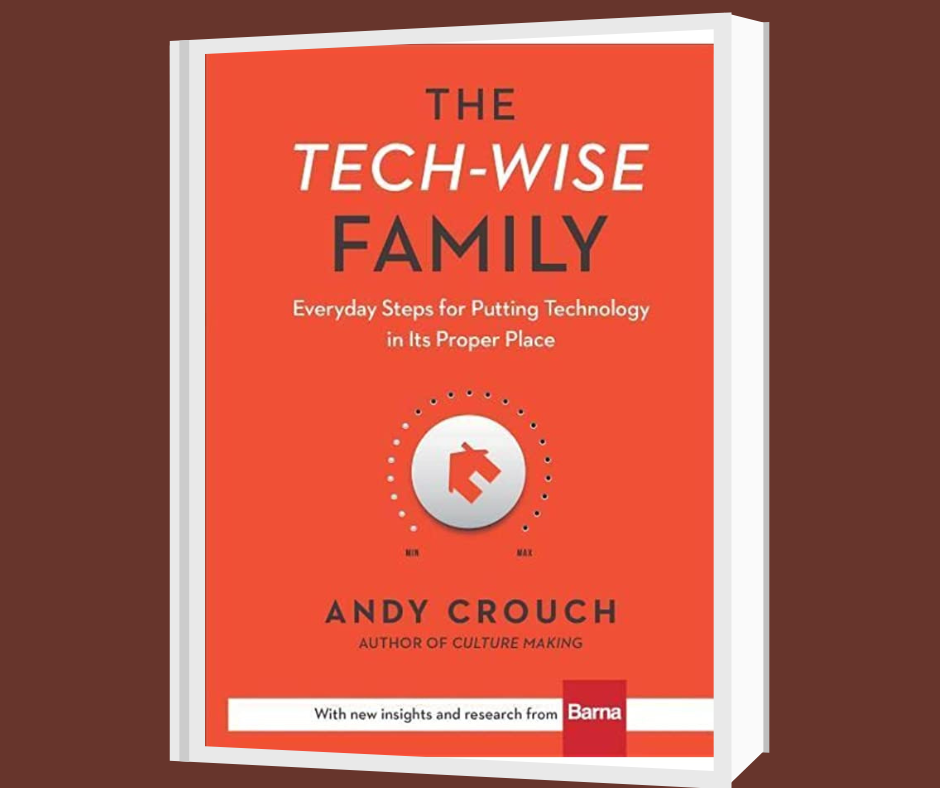Book Reviews
The Tech-Wise Family: Everyday Steps for Putting Technology in Its Proper Place, by Andy Crouch | Review by Rosa Byler

Technology has been around for a long time—when God assigned man dominion over the rest of creation, He gifted him with the creative abilities to bring about scientific discoveries and technological progress (see Genesis 4). Technology has always had the potential for straying from “its proper place,” but the pace of development in the last sixty years makes discernment more essential now than ever. The Tech-Wise Family focuses on the cutting-edge marvel of devices with screens, whose effects have begun to prompt concern from Christian and secular authorities alike.
Author Andy Crouch describes the problems inherent to this particular technology and introduces the course of action begun by his family nearly twenty years ago. He lists ten “tech-wise commitments,” which he describes as “nudges: small changes in [our] environment…that make it easier for us to make the choices we want to make” (33). (Grocery stores, for example, nudge us to buy certain products by locating them strategically.)
The rest of the book is divided into three sections. The first outlines key decisions that give solid nudges to character development, intentional home environment, and time management; the middle section contains practical guidance for following those nudges into wiser living. The last section advocates two noteworthy practices not generally emphasized in the broader evangelical world: families singing together and prioritizing attendance at weddings and funerals.
My top pick of Crouch’s excellent tech-wise commitments would be developing wisdom and courage as families, creating rather than consuming, and finding rhythms of work and rest. (41-42) Crouch states that wisdom and courage can only be developed with other people—people who know us so well that we cannot hide our difficulties from them and who are so committed to our growth that they won’t let us stay the way we are.
The obvious place for families to accomplish this is at home (although Crouch suggests using car time for conversation). Surrounded by items that require little skill for use and demand almost no investment of creativity from us, though, we become primarily lazy and underdeveloped consumers. Crouch advises shaping our space instead by filling the central places in our homes (living rooms, family rooms, kitchens) with “things that both adults and children will find…engaging, demanding, and delightful.” (81)
Work/rest rhythms involve more than taking Sunday off from work and going to church. Most of us would admit that our screens have followed us later into the night (and earlier in the day) as well as into the Lord’s Day. Crouch demonstrates that screen-based entertainment, while increasingly viewed as a boredom-alleviator, is actually the opposite. One of the rhythms he recommends is “no screens before [the age of ten]”; another consists of making sure screens are “used together and for a purpose,” rather than “aimlessly and alone.” (139)
Crouch acknowledges the dangers of internet pornography with its promise of easy pleasure without wisdom or courage. Yet while he recommends “powerful filters” and accountability (“no technological secrets, no place to hide them”), he reminds us that addictions feed on emptiness. Therefore, the best defense is “a full life” involving strong relationships and the deep satisfaction found in a “sense of purpose and possibility.” (171-175)
Assuming technology as a fact of life that will not go away, The Tech-Wise Family provides a concise and family-specific version of its challenges along with instruction and advice from a Christian perspective. While his family (now grown) has put into practice all of the strategies presented in the book, Crouch is honest about both their successes and weak spots. The book is well-written and easy to read. Highly recommended!